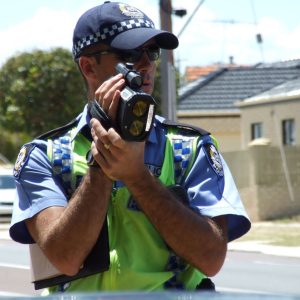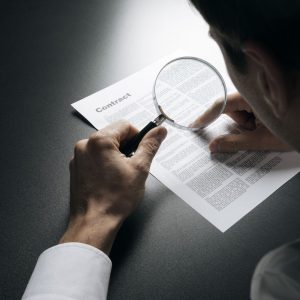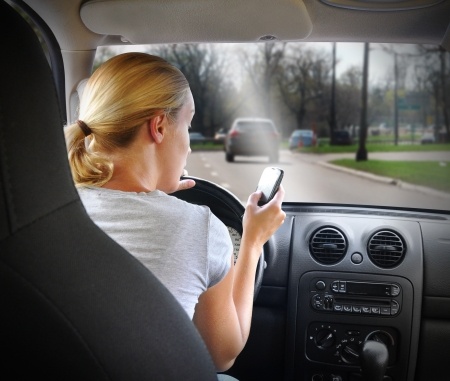DISTRACTED DRIVING
What counts as distracted driving
When you aren’t focused on the road, things can happen fast.
Using your phone to talk, text, check maps or choose a playlist while you’re behind the wheel all count as distracted driving – and they put you and others at risk.
Other activities like eating, reading or typing a destination into a GPS are also dangerous when you’re behind the wheel.
It doesn’t matter if you’re on a highway or stopped at a red light – distracted driving could cost you.
Distracted driving statistics
In Ontario, deaths from collisions caused by distracted driving have doubled since 2000.
Ontario data on collisions from 2013 show:
- one person is injured in a distracted-driving collision every half hour
- a driver using a phone is four times more likely to crash than a driver focusing on the road
Penalties for distracted driving
The easiest way to avoid penalties for distracted driving is to not use a hand-held device when you’re behind the wheel.
It’s against the law to use hand-held communication (e.g. your phone) and electronic entertainment devices (e.g. DVD player, e-reader) while driving.
In fact, simply holding a phone or other device while driving is against the law.
You can use:
- a hands-free device (e.g. Bluetooth) but only to turn it on and off
- a mounted device (e.g. phone, GPS) as long as it is secure – not moving around while driving
If convicted, the penalty you face depends on the kind of licence you hold and how long you’ve been driving.
Drivers with A to G licences
If you have an A, B, C, D, E, F and/or G licence, you’ll face bigger penalties when convicted of distracted driving:
- a fine of $490, if settled out of court (includes a victim surcharge and the court fee)
- a fine of up to $1,000 if a summons is received or if you fight the ticket in court and lose
- three demerit points
Novice drivers
If you hold a G1, G2, M1 or M2 licence, and are convicted of distracted driving, you’ll face the same fines as drivers with A to G licences. But you won’t receive any demerit points.
Instead of demerit points you’ll face:
- a 30-day licence suspension for a first conviction
- a 90-day licence suspension for a second conviction
- cancellation of your licence and removal from the Graduated Licensing System (GLS) for a third conviction
- to get your licence back you’d have to redo the GLS program
Careless driving
You could face more charges – for careless driving – if you endanger other people because of any kind of distraction. This includes distraction caused by both hand-held (e.g., phone) or hands-free (e.g., Bluetooth) devices.
If convicted of careless driving, you may receive:
- six demerit points
- fines up to $2,000 and/or
- a jail term of six months
- a licence suspension of up to two years
You could even be charged with dangerous driving – a criminal offence that carries heavier penalties, including jail terms of up to 10 years for causing bodily harm or up to 14 years for causing death.
Tips to avoid distracted driving
Use any of these tips to avoid distracted driving and its penalties:
- turn off your phone or switch it to silent mode before you get in the car
- put it in the glove compartment (lock it, if you have to) or in a bag on the back seat
- before you leave the house, record an outgoing message that tells callers you’re driving and you’ll get back to them when you’re off the road
- some apps can block incoming calls and texts, or send automatic replies to people trying to call or text you
- ask a passenger to take a call or respond to a text for you
- if you must respond, or have to make a call or send a text, carefully pull over to a safe area
- silence notifications that tempt you to check your phone
Calling 911
In an emergency, you can use your phone to call 911, but be sure to pull off the road to a safe area.
Ref. mto.gov.on.ca






